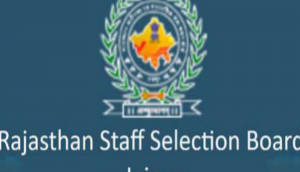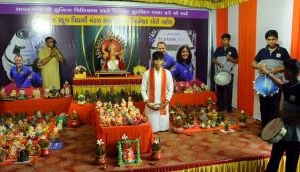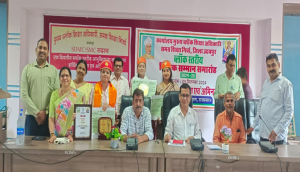
Jawaharlal Nehru University Teachers’ Association (JNUTA) conduced its first session of the five-day “public inquiry” against Vice-chancellor M Jagadesh Kumar at the university’s Sabarmati lawns. The ‘jury’ found Kumar’s conduct going against the JNU Act, 1966, including 'repeated violations of statutory provisions and obligations'.
JNUTA presented the first of the seven charges from the “chargesheet” it had submitted to the VC as a memorandum charging him with violations of statutory provisions by replacing the Gender Sensitisation Committee Against Sexual Harassment (GSCASH) with the Internal Complaints Committee, framing the university’s admission policy and appointing experts on the selection committee panels amongst others.
The trial had eminent members from various fields as a part of its jury. Academics like Nandita Narain, Apoorvanand, Prabhat Patnaik, PK Yadav and some journalists heard the charges against Kumar.
The charges were presented by two senior faculty members of JNU, Professor Ravi Srivastava and professor Jayati Ghosh, who alleged that Kumar has not been meeting the teachers and responding to their grievances.
In light of the VC’s absence, faculty member Amitabh Singh was present as Kumar's defence. Kumar had been asked to respond to the charges by 20 October but maintained his silence on the issue.
Ghosh said the conduct of the VC in the academic council (AC) meetings had been 'rude and members had been stopped from speaking or dissenting'. She also accused the VC of manipulating agendas of the AC meetings.
Speaking in the trial, JNUTA president Ayesha Kidwai alleged that “disciplinary action and vindictive punishments against students have become a norm in the university and faculty members have been removed for dissent”.
Kidwai also questioned the round-the-clock surveillance in the varsity and said it was an attempt to stifle the democracy in JNU.
At the end of the session, Professor Apoorvanand suggested that an inquiry be conducted against him by the visitor of the university, the President of India and the jury agreed that the VC’s conduct was against not just the JNU Act but other Acts of Parliament pertaining to the reservation.
“It is the vice-chancellor who is the most unstable part of a university, which is run by teachers, students, and the non-teaching staff,” he added.
“The vice-chancellor's actions are inimical to the premise of the university, in 40 years of my teaching at JNU, I have not seen a VC who went against regulations and conventions like this,” economist Prabhat Patnaik added.
The trial will continue until Thursday and will have different jury members for each day. The final verdict of the trial is expected to be announced on Friday.







![BJP's Kapil Mishra recreates Shankar Mahadevan’s ‘Breathless’ song to highlight Delhi pollution [WATCH] BJP's Kapil Mishra recreates Shankar Mahadevan’s ‘Breathless’ song to highlight Delhi pollution [WATCH]](https://images.catchnews.com/upload/2022/11/03/kapil-mishra_240884_300x172.png)

![Anupam Kher shares pictures of his toned body on 67th birthday [MUST SEE] Anupam Kher shares pictures of his toned body on 67th birthday [MUST SEE]](https://images.catchnews.com/upload/2022/03/07/Anupam_kher_231145_300x172.jpg)






